Assisted dying plans for terminally ill approved
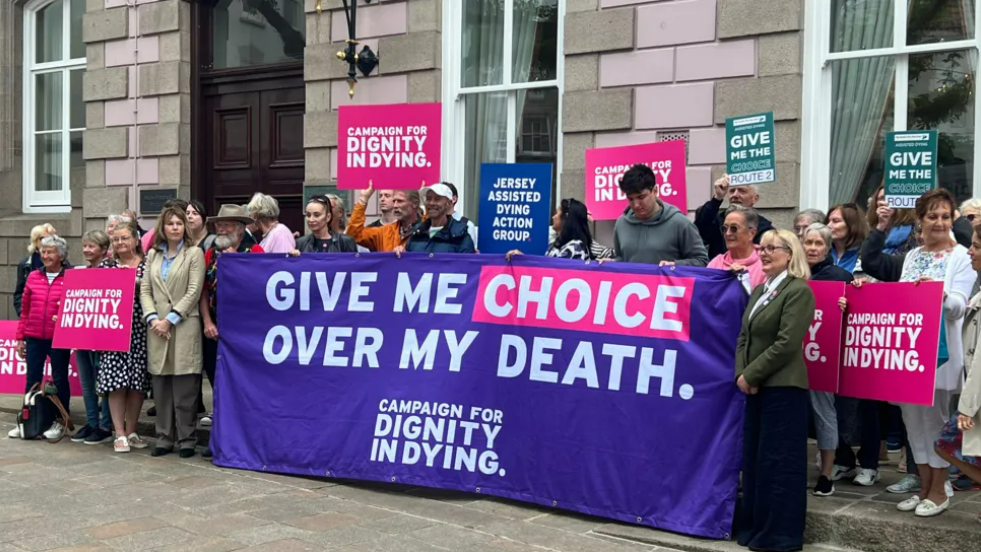
Route one has been approved by Jersey's States Assembly
- Published
Jersey politicians have voted to approve plans to allow assisted dying for those with a terminal illness "causing unbearable suffering".
The States Assembly has been debating two routes through which people who have lived in Jersey for longer than a year, are 18 or over and have decision-making capacity could apply for assisted dying.
A total of 32 members voted in favour while 14 voted against route one.
The second route, for those who are not terminally ill but who have an incurable medical condition causing unbearable suffering, was rejected by a majority of 27 to 19.
Plans for legalising assisted dying were voted on in principle by the assembly in 2021, but the aim of the vote was to decide how it could work in practice.
With a decision now made, the process for drafting a law could take about 18 months, with a debate then taking place by the end of 2025.
If a law is approved, it is expected a further 18-month implementation period would then begin, meaning the earliest for it to come into effect would be summer 2027.
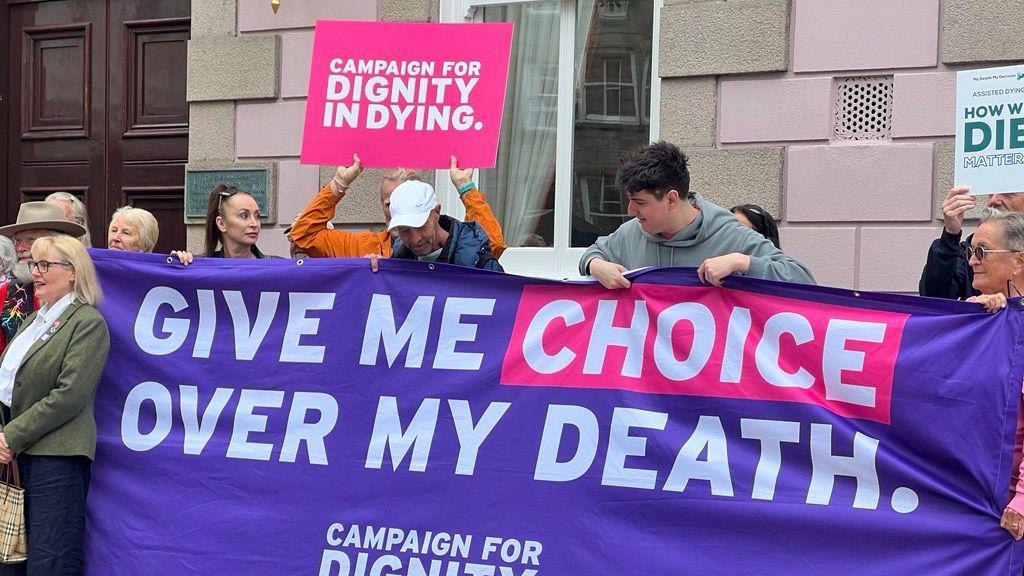
It is expected the process of drafting a law could take about 18 months, with a debate to take place at the end of 2025
Speaking after the debate, Chief Minister Lyndon Farnham said "robust safeguards" would be "enshrined in law".
He thanked the assembly for a "thoughtful, respectful and considered" debate.
Health Minister Tom Binet said members had debated "one of the most serious matters we will ever address".
"I am pleased that the assembly voted in favour of developing an assisted dying law, but on a personal level, I think it is matter of regret that they only adopted assisted dying for the terminally ill and not those experiencing unbearable suffering," he said.
"However, I fully accept that this decision reflects the will of the assembly and wishes of many islanders."
'Victory for compassion'
Jennifer Bridge, a former States member and leader of Jersey Assisted Dying Action Group, said it was a "historic date" for the island.
"I hope States members will continue to give their support to this reform because the vast majority of us agree that an assisted dying law would be safer and kinder than the status quo," she said.
Sarah Wootton, chief executive of Dignity in Dying, said the vote was "a victory for compassion and common sense".
"We congratulate States members for listening to the wishes of Jersey citizens and rejecting the assisted dying ban," she said.
"They have recognised that doing nothing and maintaining the status quo is unconscionable."
However, Deputy Barbara Ward, who worked as a nurse for 45 years, was against the proposals and said it should be called "an assisted suicide bill".
Deputy Sir Philip Bailhache shared concern for the impact the plans could have on disabled people.
He said if assisted dying was approved, Jersey risked becoming a society that told disabled people their lives are not as valued as those of non-disabled people.
'External pressures'
The Dean of Jersey, the Very Reverend Mike Keirle, told the States he was worried people could feel pressured to go down the assisted dying route.
He said autonomy can be subject to many "external pressures".
"It would be fantastically naive to think that people won’t come under some kind of indirect societal pressure," he said.
"As the old saying goes, where there’s a will, there’s a family."
Patrick Lynch, chief executive of Caritas Jersey, which promotes Catholic social teaching, said it would be better for the States to "spend public money addressing poverty and issues in other areas of healthcare rather than assisted dying".
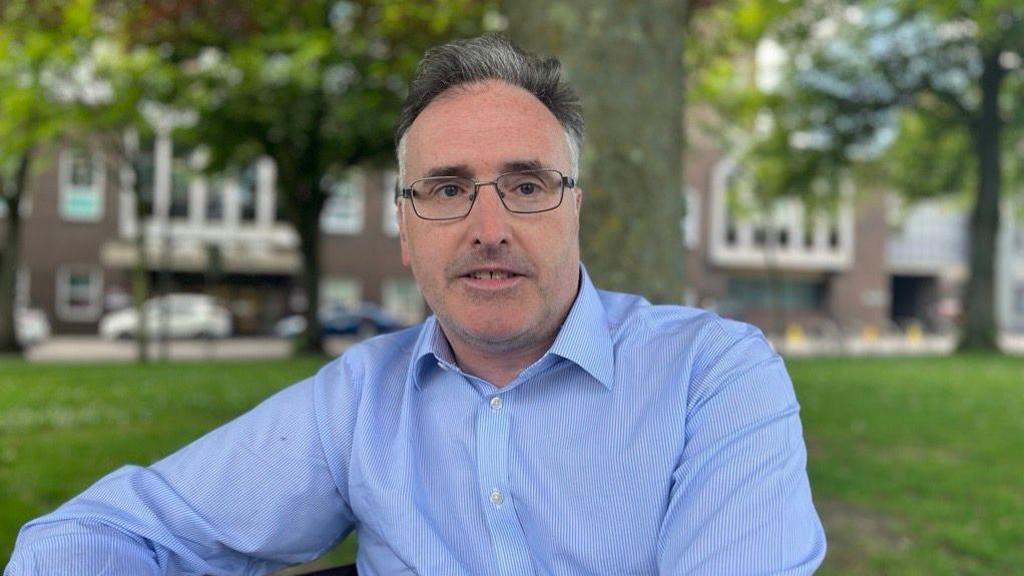
Caritas Jersey CEO Patrick Lynch said it would be better for the States to "spend public money addressing poverty"
Most members voted in favour of an opt-out for health professionals, giving them a right to refuse to participate in assisted dying.
A majority of the assembly also voted for a minimum timeframe, proposed to be 14 days, between the point at which a person makes a first formal request for assisted death and the administration of the substance that leads to death.
Analysis by Ammar Ebrahim BBC Jersey political reporter
The vote on Wednesday was a significant step forward towards legalising assisted dying, but by no means the end of the road.
It means States members have given the health minister the green light to bring a draft law back to the assembly next year – a proposal that could still be rejected.
The striking part of the debate was how emotive it was, with politicians speaking powerfully about their own personal experiences.
In his closing speech, Health Minister Tom Binet described how challenging it was to see his father suffer such a difficult death.
Some politicians had serious concerns over whether there were enough protections so vulnerable people were never pressured into assisted dying, while others highlighted the range of other challenges in the health system that still need to be tackled.
The assisted dying scrutiny panel also asked for a palliative care strategy to be published at least two months before a draft assisted dying law is brought to the assembly, so there is still plenty of work to do.
Follow BBC Jersey on X (formerly Twitter), external and Facebook, external. Send your story ideas to channel.islands@bbc.co.uk, external.
Related topics
- Published22 May 2024
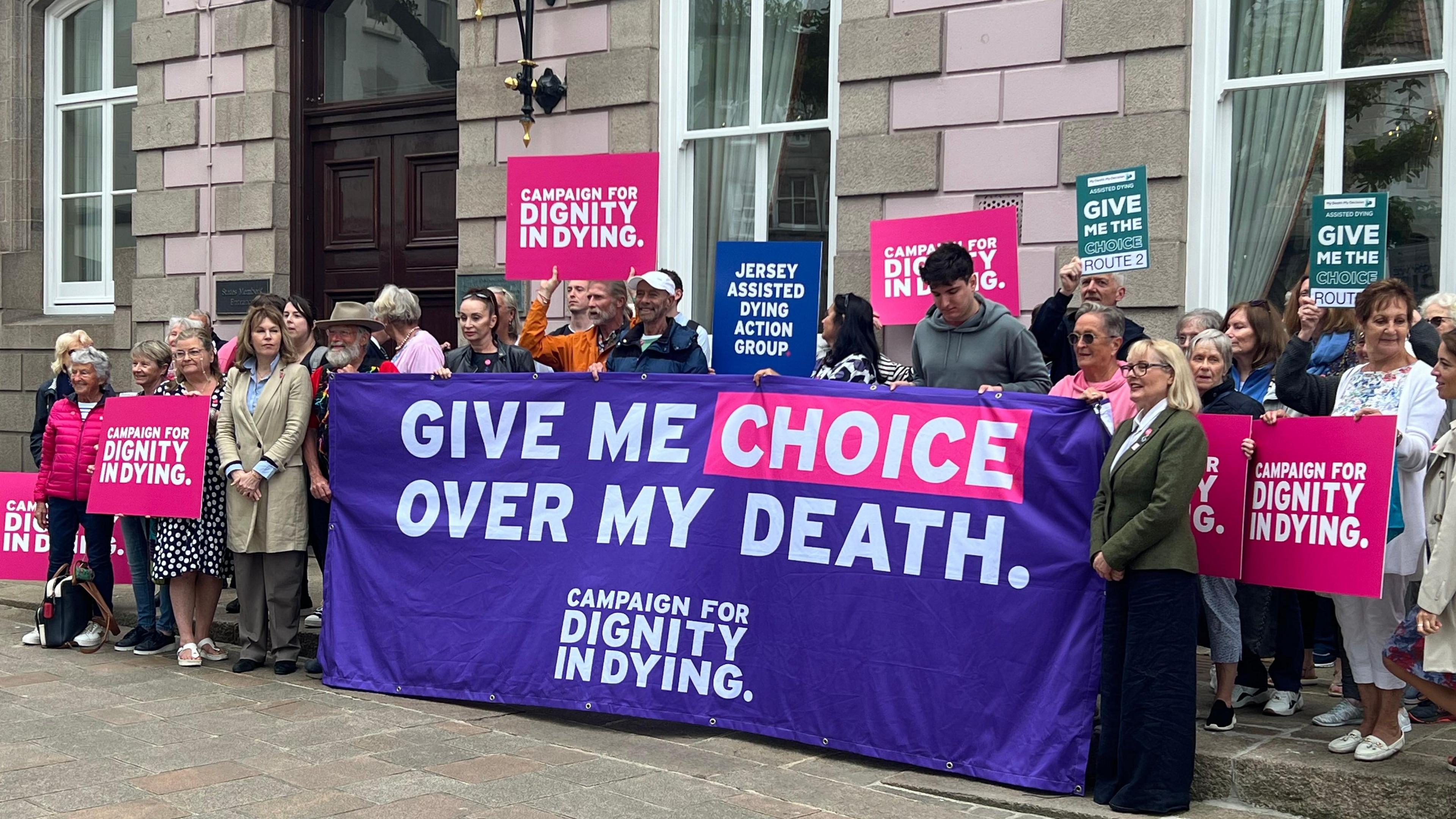
- Published21 May 2024
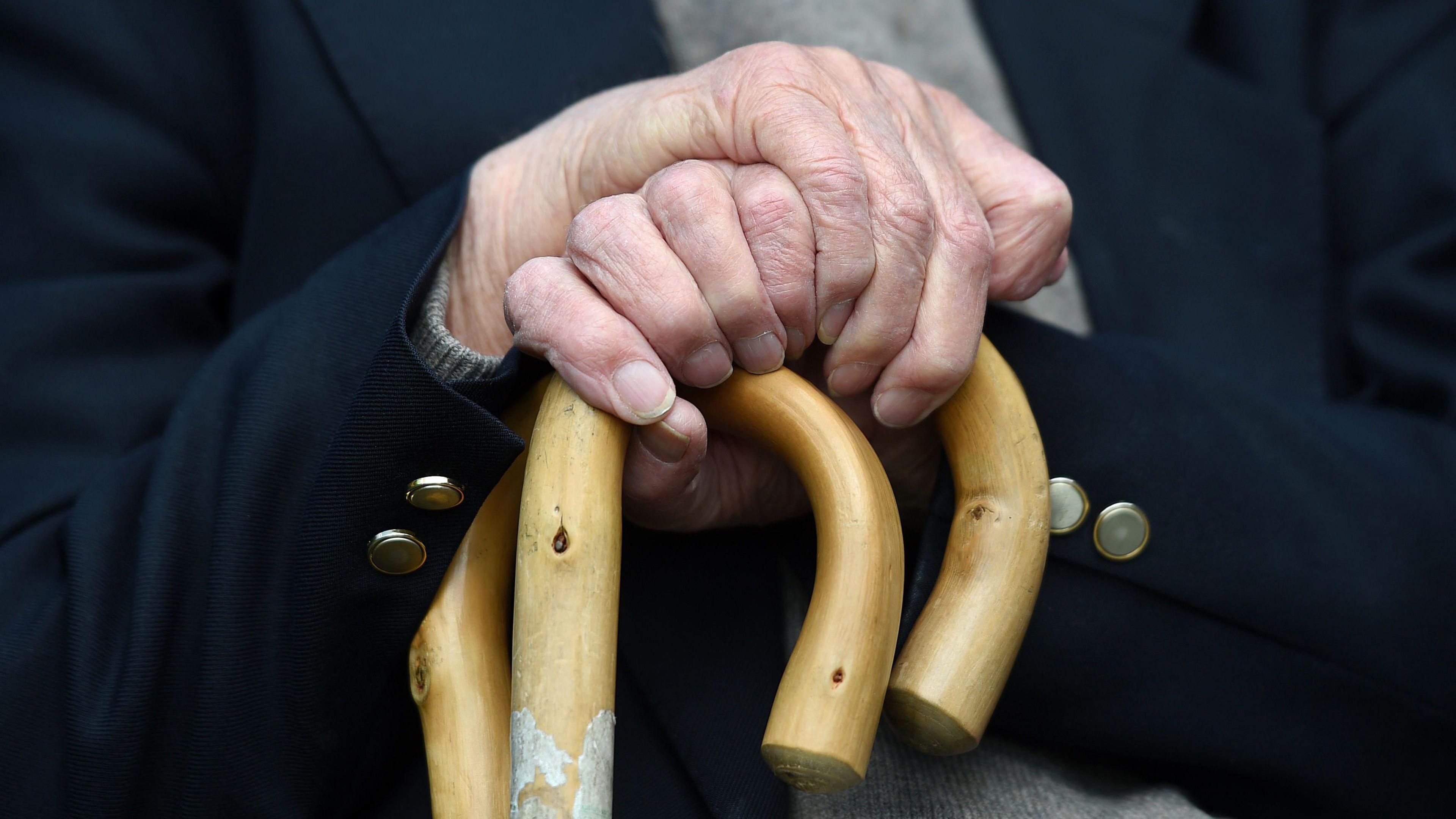
- Published22 March 2024
